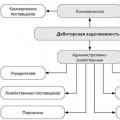The philosopher Ludwig Wittgenstein argued: a person's world is what his language is. Learning a foreign language affects thinking processes and the characteristics of consciousness. We study a foreign language in order to build a successful career, move to a permanent place of residence in another country; or because we enjoy learning about another culture. When we teach a child English, we thereby expose him to all these possibilities - with the only difference that this happens ahead of time, one and a half to two decades before his adult life begins. With knowledge of English it is much easier to build a career; and if the desire arises, then change your destiny by moving to another country. – this is the key to many doors of their future.
Why should a child learn English?
For what other reasons English for children is the best method of intellectual development?
- The age range from 4 to 6 years is considered sensitive in relation to learning a foreign language. This means that learning English for children at this age is much easier. The phonetics of the native language have already been mastered, so there is no risk of “mixing” the two languages. Kids don't just learn English; they "absorb" it. If mom calls a spoon “the spoon,” this means that this is what this item is called. The child does not need to learn anything additional; the information settles in the unconscious in blocks. It is especially useful to master at an early age, because then there will be no difficulties with it at school.
- Children learning a foreign language have better concentration abilities. A child who speaks a foreign language (in particular, English) is distinguished by the ability to better understand phenomena and delve into their details. For example, when a child joins a new team, he will quickly grasp the essence of the relationships between other children. Funny stories in a foreign language, interesting exercises - all this develops the child’s ability to concentrate.
- One of the main difficulties in learning English for adults is that they transfer already familiar grammatical structures of their native language into a foreign language - as if using tracing paper. Children have not yet developed such stereotypes. Therefore, for a child, the English language is a completely new sign system; he does not compare its grammar with the phrases of his native language, but learns it “from scratch.” He develops a “feeling” of foreign speech. Psychologists recommend that children start learning English from scratch at the age of 4-5. Already from this age, you can start playing simple games in a foreign language with your child, teach with your child, and master.
- In addition, the baby develops intellectually and learns to think differently. Children who learn a foreign language adapt better to an unusual environment; they are more flexible and relaxed in communication. Learning English is one of the most highly intellectual types of workload for the human brain. English for kids is not just rote learning of new vocabulary and grammar; it is the incorporation of a new system of concepts that supports the functioning of the developing brain at a high level.
English for children: learning principles
There are no children who are incapable of learning a foreign language. Every child in childhood spends titanic work on mastering their native language. Therefore, they are not a fundamentally new area of knowledge - compared, for example, with teaching writing or arithmetic. A child who has learned to communicate in his native language is equally potentially capable of mastering English.
It happens that at school a child experiences difficulties with foreign languages. What could be the reasons for the difficulties? How to make learning a foreign language effective for a child? And what is the best way to organize teaching English to beginning children? Let's look at a few fundamental principles.
- One of the fundamental principles is the correct selection of training intensity. Teachers agree that for a child aged 2 to 4 years, the duration of an English lesson should be about half an hour. At the age of 4 to 6 years, you can practice a little longer - up to 1 hour. As a rule, English lessons for children are held 2-3 times a week. One lesson is usually devoted to a specific topic - family, animals, my home, summer holidays, school life. This lesson also contains elements. Based on the topic of the lesson and the grammatical structure that is introduced in the lesson, the parent or teacher selects the material -,.
- If a younger student has difficulties with English, special attention must be paid to increasing his self-esteem. Perhaps the child is experiencing stress due to high school demands and the need to “catch up” with more successful classmates. Difficulties may also arise because the child hears reprimand much more often than praise. Praising a child means providing him with the psycho-emotional comfort that is so necessary for learning. It is necessary to convey to the child the fact that abilities can be developed through training. There are many resources that provide English materials for children online for free. To improve a student’s conversational speech, they will be suitable. Additional activities at home will improve your academic performance at school.
- The easiest way to teach a child English is through games. Play is the leading activity until school age, when children's fun takes the place of learning. However, younger schoolchildren still love to frolic and play. Both play activities with the child and... By approaching your child’s education wisely, he will not have to be forced to learn English “under pressure.” The child himself will look forward to the next lesson. After all, for him this is the time when he can enjoy fun games.
- They also show effectiveness - after all, by watching them, the child has fun and at the same time masters the language. Plots are often based on
Hi there, guys! Still wondering how to get your child interested in English? In this article, we have selected educational videos for you in all main areas: words, phrases and grammar. Bright, interactive and educational video English lessons for children will help not only little beginners, but also schoolchildren. Let's get to it!
How video lessons help children
Video lessons for children in English, just like songs and cartoons, are created in order to:
- overcome the language barrier;
- improve pronunciation ;
- understand the context and perceive English speech by ear.
The form of the lesson requires a response from the student (repeat phrases, answer questions or name words from pictures).
However, when the process is controlled not by a strict teacher, but by funny characters, the child is not afraid to make a mistake and feels free and comfortable.
Schedule. My day
Cards with pictures have not been in fashion for a long time. In this video lesson, so boring and monotonous, drawings with a daily routine came to life and became fast, dynamic and visual.
There is pronunciation of words, example sentences, and a knowledge test at the end.
Yes, by the way, it’s quite possible to learn all these words in just 5 minutes:
wake up- wake up
get up- get up
have breakfast- have breakfast
brush teeth- brush your teeth
wash face- wash your face
get dressed- dress
go to school- Go to school
take classes- take lessons, study
have lunch- lunch
play with friends- to play with friends
come home- come home
do homework- to do homework
have dinner- have supper
take shower- take a shower
go to bed- go to bed
Hobbies and interests. Hobbies and interests
Surely your child has interesting hobbies. The following video will help connect them with the English language.
It contains all the necessary words and phrases on the topic of hobbies and interests (playing the guitar, reading books, drawing, watching TV, cooking, singing, dancing, listening to music, swimming, hiking, taking photos, riding a bicycle).
Each expression is given a clear context and an example of a situation in which it can be applied. In addition, the grammar will also be remembered ( ending «- ing" for verbs after " like»).
Items in the house. Parts of the house
What could be easier than practicing naming objects in the house in English? This video is a good start to learning nouns.
The eye-pleasing colors of the images only contribute to better memorization, and slow and clear pronunciation will not allow the child to get confused.
In the video lesson you will find words on the following blocks of topics:
- external parts of the house(roof, window, door, garden, garage);
- room names(living room, kitchen, bathroom, bedroom);
- furniture and appliances(sofa, bookshelf, stove, refrigerator);
- items(carpet, dish, spoon, fork, knife, tub, sink, soap, towel, bed, blanket, pillow).
Prepositions of place. In, On, Under
After the items in the house, the next step is to tell what is where. This video helps you learn prepositions of place from all angles and in different contexts: small dialogues from life, songs with different melodies and simple stories about different characters.
In addition, the heroes of the video will teach you how to correctly ask question « Where is ... ? ».
Fairy tales. Fairy Tales
You can add a little magic to your study by watching a video with fairy tales about princesses, dragons and knights. Kids like that!
It contains a set of basic “fairytale” vocabulary, and in the future you will be able to read fairy tales to your child in English.
The video lesson is built in the form of a simple little story in which the necessary words are highlighted and repeated for memorization. This lesson format with a plot will definitely not be boring.
palace- castle
king- king
queen- queen
princess- princess
witch- witch
magic- magic
knight- knight
monster- monster
prince- prince
fairy- fairy
dragon- the Dragon
hero- hero
Antonyms. Opposite words
Have you learned a lot of words and want to expand your vocabulary? There is a good way - antonyms! This video lesson consists of words with opposite meanings and corresponding associative pictures. This form will help you connect new and already learned words in pairs.
With this lesson, your child will be able to remember pairs of adjectives, verbs And prepositions:
big-small
tall-short
strong - weak
soft-hard
fast-slow
heavy - light
full - empty
wet-dry
dirty - clean
go - stop
open-close
push - pull
up-down
on-off
English video lessons from Khryusha and Stepashka
There is a whole series of funny video lessons in which the puppet characters Khryusha and Stepashka learn English.
Thanks to the vivid associations with endings, negatives And pronouns starring, the rules will be remembered easily and for a long time.
Conclusion
Well, the choice of video English lessons for children is huge, but remember that your child is unique and for him you should choose exactly the way to present information that will be interesting and understandable to him.
We follow this principle in selecting a training program for a child in English courses for children.
We hope that our article will help you find just that!
Big and friendly EnglishDom family
An absolutely wonderful collection of more than 40 English mini-lessons, each lesson with a vocabulary, a song and online games for children. Games on all topics of the English language for beginners are presented: Dating, Family, Birthday, Colors, Numbers, Body Parts, Face, Home, Food, Fruits and Vegetables, Clothes, Animals, Time, Seasons, Weather, Transport, Places in the City , Verbs, Prepositions,…
Today we have a whole range of educational online games on the topic “phonics”. In the proposed games we will look at the letters of the English language and their combinations and listen to what sounds of the English language can correspond to them. In terms of execution, the games are very exciting and entertaining; while playing them, it is simply impossible not to remember which letters or letter combinations correspond to which sounds. AND…
Today we will help Santa Claus and the elf Emmy choose gifts for the children. We listen to what Santa Claus says about the children’s hobbies and try to choose two gifts for each of them that match their interests. If Santa Claus' speech is difficult to understand at first, you can look into the text 😉 English 4 kids (English for children)
Studying foreign languages trains memory, broadens a person’s horizons, gives him more opportunities for further education and career advancement, and opens doors that were previously inaccessible to him. Many parents, caring for the child’s prosperous future, insist on learning a foreign language from an early age; priority is given to learning English, since it is recognized as international.
English for children, namely, the training program varies depending on the age at which the child began classes.
As you know, children are easy to learn, it is easier for them to remember the pronunciation or meaning of words, since the brain assimilates the information received much better than that of older people. You can introduce your baby to learning foreign languages from birth; there are many special programs and methods for this, but as practice shows, children growing up in a bilingual environment begin to speak later than their peers.
The optimal period when you can conduct the first English lessons for children is 3–4 years. It is at this age that children already know their native language thoroughly, and being in the why stage, they are ready to absorb any information and happily take on learning, as long as it is fun.
English for children from 3 years old
At three years old, children can speak, but most of all they succeed in asking questions, so if you decide to study foreign languages, English in particular, structure your English lessons for children in the form of a game, where the child asks questions in Russian, and the answer hears with translation. You can’t overload 3 year old fidgets with letters, transcriptions and verbs; they will learn all this after they go to school, and first you need to replenish your active and passive vocabulary.
Every day you need to replenish your stock with at least one new word, you can do this thematically, for example, one week you learn colors in English; it will be more accessible for children if you devote the whole day to this color. For example, when learning about the color yellow, put a yellow scarf on your baby when going for a walk, then look for yellow objects on the street, exclaiming “yellow” when you see a yellow car, sign or flower. In such games you need to give in a little to the baby, pushing him and provoking him. Well, the prize for the winner could be a yellow treat - a banana, lemon ice cream or marmalade. And so on all week, then you can study animals, plants, vegetables, fruits, food. When learning a language using cards and pictures, you don’t need to translate words by simply pointing to the picture, call it in English, so the baby will learn to think and will not be distracted by translating the word in his mind.
English for children 3 - 4 years old will be much more fun if you arrange quizzes and games, for example, if the names of toys and animals have already appeared in the baby’s vocabulary, you can collect numerous items in a bag and, taking out one at a time, ask the baby what it is. You can also place toys and objects throughout the house and ask them to bring something, naming this object in English.
English for 3-year-old children will be easier to remember if the entire learning process is structured in a playful way, and is also based on the child’s natural curiosity.
English for children 5 – 6 years old
At this age, children are more diligent and can already move on to the next stage of learning, having learned the English alphabet. It will still be more interesting for children to learn letters based on pictures, provided that they know all the words in these pictures in translation. One of the common mistakes parents make when learning the alphabet is the incorrect selection of cards with letters, where the images are misleading, or the wrong approach when the child, without having a vocabulary, starts with learning the alphabet.

It doesn’t matter at what age you start learning a foreign language, at 3, 7 years old or at 13, the methodology is the same: first, children learn to listen, then speak, read, and then write.
Children aged 5-6 years also grasp everything on the fly, so when learning foreign languages it is necessary to initially remember the pronunciation correctly. If the parents are not native speakers, it will be better if the kids attend special English courses for children, where, with the help of games and communication, they very quickly remember the pronunciation and meaning of words, and also learn to construct sentences from several words.
Good results are obtained by watching special educational cartoons, programs and programs for audiences of this age. You can also find computer games whose task is to develop logic and consolidate knowledge of foreign languages. For better pronunciation, you can learn simple poems or songs in which words and actions can be pronounced and accompanied by gestures.
At this age, kids love praise, so for additional incentive you can come up with various prizes, chips and certificates.
English for children 7 – 8 years old The study of foreign languages by children of primary school age can be carried out according to the school curriculum, but as practice shows, children need a special approach, and the school cannot provide greater knowledge in foreign languages, since such lessons become boring.
If the child falls behind the program, English lessons generally lose meaning for him.
Books in English for children should also have a transcription in order to be able to initially correctly read a word and remember not only its spelling, but also its sound. In order for children to learn to think in a foreign language, it is necessary to ask them riddles and puzzles. So, for example, you can describe an object in English, describe the size, color, what it refers to, and the student must guess; here comes the motivation for learning, because if children do not understand leading questions or descriptions, they cannot guess the hidden word.




